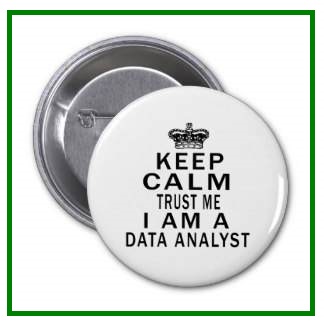It’s been about a year and a half since I starting agitating for a Massachusetts Institute of Nonprofit Technology, an initiative that will kick off by training the nonprofit data analysts of the future.
The concept has morphed and evolved a great deal in that time, thanks to all the great input from Massachusetts stakeholders, but also from a team of ELP fellows from the Center for Collaborative Leadership.
One thing that is quite clear is that there is no need to create a new institution, or raise up a building with a splendid dome. (The Massachusetts Institute of Technology can rest easy, without fear of competition, or brand encroachment.) I believe that all of the necessary institutions exist already here in the Bay State. What is needed is a consortium that can knit them together for this purpose, some funding, and some candidates.
It’s a pipeline, or perhaps a career ladder that the consortium needs to build – not an edifice. Although I love the splendid domes of MIT, we can simply admire them, and hope that eventually some of the people who work and study under those domes will become part of the consortium.
Here’s what I think we need:
- Allies from workforce development, job readiness, and college readiness programs. These are the folks who will raise awareness of the coming need for technology professionals who can provide data analysis and other data services to nonprofits, and guide them to the next rung of the career ladder. Examples include Economic Mobility Pathways (EMPath), Shriver Job Corps, International Institute of New England, JFYnet, Jobs For the Future, National Fund for Workforce Solutions, SkillWorks, Boston PIC, YearUp, and Massachusetts Department of Labor and Workforce Development.
- Allies who provide relevant training and education to candidates who aspire to careers in data services and data analytics for nonprofits. Examples include Bunker Hill Community College and Tech Foundry.
- An organization that is able to place, mentor, and coach candidates in entry level data services positions at local nonprofit organizations. That’s TNB Labs. These entry level workers will be known as “data support analysts,” or DSAs.
- Allies from local nonprofit organizations who are willing to host (and pay for the services of) a DSA for a period of one or two years. TNB Labs will be the official employer of these workers, providing them with a salary, benefits, a modest sum for further professional development, coaching, and mentoring. The DSAs will be working on site at the nonprofit organizations and dedicating themselves to tasks assigned by the nonprofits. Examples of distinguished nonprofits that could play this role are Community Servings, Saint Francis House, Community Catalyst, Health Care For All, Massachusetts Association of Community Development Corporations, Perkins School, City Year, Jewish Family & Children’s Services, Cambridge Health Alliance, Family Service of Greater Boston, Massachusetts League of Community Health Centers, Greater Boston Food Bank, the Boston Foundation, AIDS Action Committee, and the Home for Little Wanderers. (Not that they’ve actually signed on for this, but that they would be great members of this consortium.)
At the conclusion of the one or two year placement at a nonprofit organization, I think that any of the following outcomes would count as a win:
- The host nonprofit hires the DSA (with a raise and a promotion) as a long term regular employee.
- The DSA lands a job providing data services at another nonprofit organization.
- The DSA lands a job in a different field or sector that is congruent with his/her/their career aspirations.
- The DSA is able to apply to a four-year degree program, transferring course credits, on the job experience, two-year degrees, or certifications that he/she/they have earned.
The latter scenario – of advancing in higher education – brings us to the final category of allies needed for our consortium. The best example of this kind of ally is UMass-Boston, which has programs in related areas, such as:
- Information Technology (undergraduate degree)
- Nonprofit Management (graduate degree)
- Human Services (graduate degree)
- Public Administration (graduate degree)
- Program Evaluation (graduate level certificate)
In addition, our consortium has a great ally in an individual UMass-Boston faculty member, Michael Johnson, whose research focus is decision science for community-based organizations. He has expressed a generous desire to be a mentor to community college students in this career ladder, and to encourage those who are qualified to apply to be Ph.D. students in this field.
And that’s just UMass-Boston! I’m not as familiar with the offerings of other distinguished colleges and universities in the area, but the Boston University program in nonprofit management and leadership , the Nonprofit Leadership program at Wheelock, and the Institute for Nonprofit Practice at Tufts come to mind immediately as potential allies.
So here we are. The need is there for data service providers who can serve the missions, programs, and operations of nonprofit organizations. If we can weave all these allies together into a network, we can meet these needs.
All that we require is:
- Allies who are ready, willing, and able to pitch in.
- Public awareness that this career ladder is available.
- Funding to assist candidates cannot afford tuition for college coursework and other forms of training.
- Funding to assist nonprofits that would like to host a data service analyst from this program, but lack the (modest) funding to support one.
Let’s do this!






